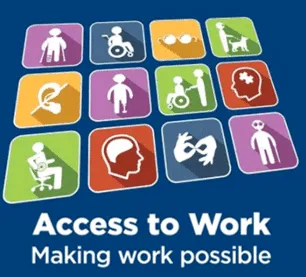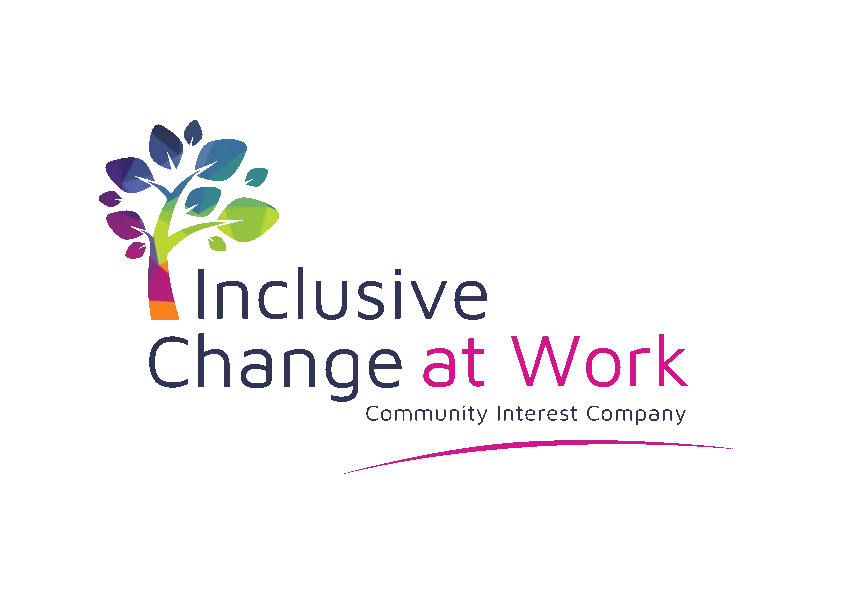Read our Blog
Find out more about our work & team
Learn more about neurodiversity

What are Reasonable Adjustments?
What is Access to Work?
Firstly, let's talk about Access to Work. Access to Work is a grant that funds practical support in work if you have a disability, or physical or mental health condition. The aim of the scheme is to help someone start work, stay in work, or help move to self-employment or start a business.
Coming from someone with an Access to Work grant, I can confirm that it truly can be life-changing.
By providing financial assistance to those who are neurodivergent or disabled, it gives people the opportunity to perform their job effectively, ensuring that they can not just work in the first place, but really thrive.
While Access to Work can provide a number of incredible things, they make it very clear that they do not fund reasonable adjustments. But...
What Are Reasonable Adjustments?
Quite simply, reasonable adjustments are changes an employer makes to remove a disadvantage someone may be facing in work. They are not 'perks' designed to give disabled employees an 'easier time' in work, and are completely reasonable to request, hence the name.
Adjustments can be made to employee’s workplace, their working arrangements, the provision of equipment, services, or support, and/or finding a different way to do something.
For example:
Changing someone's start and finish time to work around their availability. If they struggle to get up in the morning, then a later start and end time may be relevant to them.
Presenting information in a different way. If someone struggles to read sheets of text, giving it to them in a different, perhaps visual, way could make things all the more easier.
Giving people a comfortable space to work; if someone has anxiety and finds it incredibly difficult to hot-desk, providing a permanent desk would help significantly.
Reasonable adjustments like these are small and don't take much effort on the employer's part, but can really allow someone to reach their full potential in work.
When do you turn to Access to Work?
When the adjustments required are more than small changes, such as travel into work or equipment to deal with long-lasting pain, Access to Work is your next option.
If you need any help applying, you can always contact us via our contact page here.

A Journey of Neurodiversity Advocacy and Change
Read Lucy Smith's story through an interview with Golden Valley.
Lucy talks about how she became an advocate for neurodivergent people, what drives her to try and make changes for neurodiverse employees and how her own personal experiences with her neurodivergent family have shaped her views and direction in life.

Women in the Middle® Entrepreneurs:
EP #52: Sharing the Positives About Neurodiversity with Lucy Smith.
Suzy Rosenstein, a master life coach, hosts a podcast called Women in the Middle Entrepreneurs, a podcast where these important conversations about the intersection of being a midlife entrepreneur who's also a woman 50 plus can happen.
Coaching & Virtual Assistant Support
Enhance your professional skills and productivity with our coaching and virtual assistant services, designed to empower you in the workplace.
Mentoring
Connect with experienced mentors who will guide and inspire you on your journey to success, providing valuable insights and support along the way.
Work Support
Benefit from personalised support in various aspects of your work life, ensuring a conducive and inclusive environment for your growth and progress.
Interview Support
Prepare for interviews with confidence and poise, with our interview support services aimed at helping you showcase your talents and abilities effectively.
Inclusive Change At Work CIC
Bradbury House
Wheatfield Road
Bradley Stoke
Bristol
BS32 9DB
Companies House: 13271923
ICO registration: ZZB293922
UK register of Learning providers
UKRLP: 10090653
Copyright © 2024 Inclusive Change At Work CIC | All Rights Reserved


Facebook
LinkedIn
X
Instagram